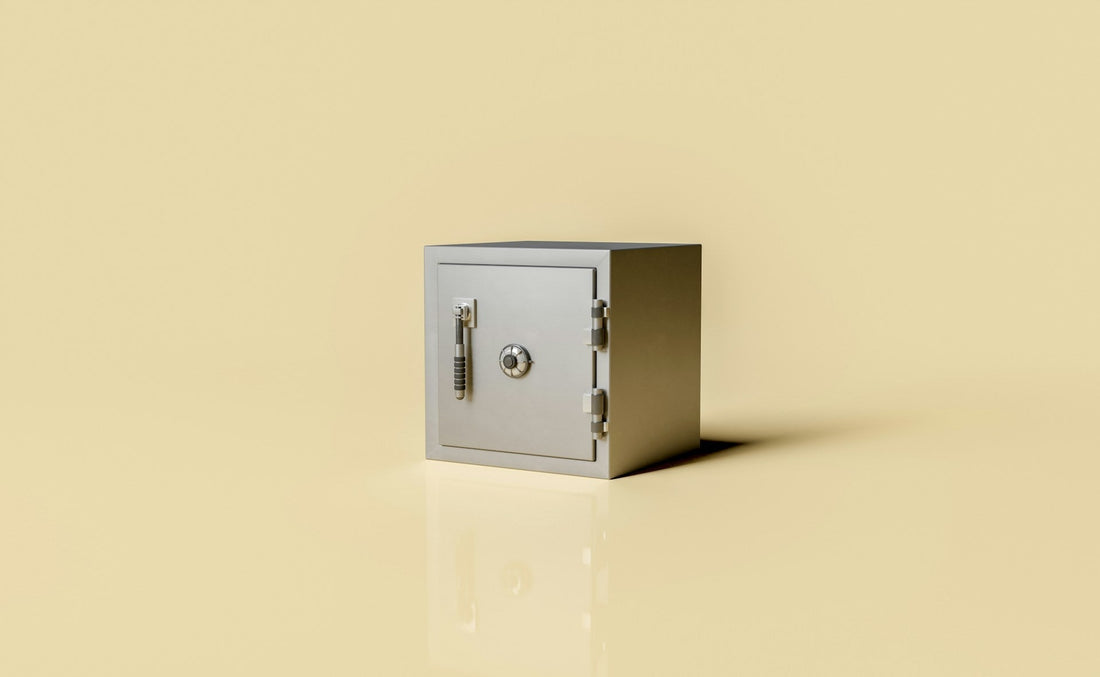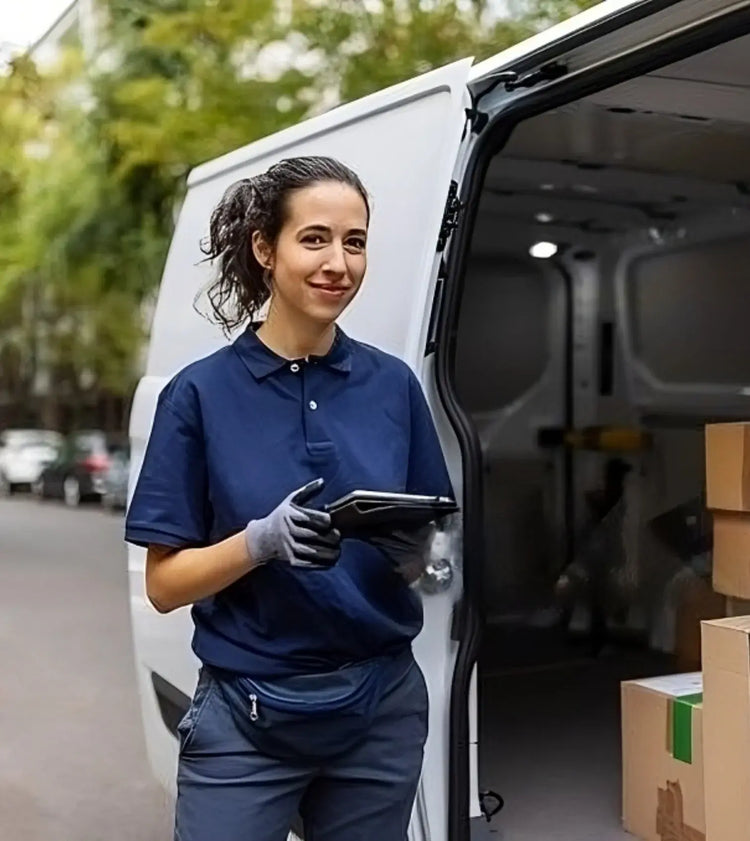
How Safe Is Self-Storage?

Share
Self-storage is very safe. Especially if you choose a company that comes with high security, good facilities and secure storage units.
Currently, thousands of people across the UK put their items in self-storage. In fact, self-storage has increasingly become a go-to solution for those needing extra space. But how safe are your items really?
The truth is that the safety of self storage depends on a number of factors. Here, we talk you through them to make sure you can rest easy knowing your items are safe and sound.
Is It Safe To Put Stuff In Storage?
The short answer is yes - when you choose the right company, self-storage is a very safe way to store your stuff.
The days of leaky, old warehouses are long gone. Today’s facilities are professionally managed, surveyed by modern security systems, and designed to protect your things from theft, fire, and damage.
At The Box Co., for example, we offer secure storage by the box – collected from your door, kept in a monitored facility, and delivered back when you need it. It’s convenience without compromise, and yes, it’s safe!
What Are The Main Risks in Self Storage?
While self-storage is generally safe, it’s worth being aware of any potential risks so you can take precautions.
Theft is the most obvious one - especially if a facility is easy to get into or lacks proper surveillance. Asking about access and security up front is an easy way to prevent this becoming an issue.
Fires, while rare, can still happen due to electrical faults or certain items like flammable liquids being stored. The storage company you choose should have a list of items they don't permit, so look this over to see if anything important is missing.
Then there’s weather: heavy rain or flooding can lead to water damage if units aren’t properly sealed and ventilated. Check this when you first walk around to make sure it won't become an issue.
Pest infestations can also cause damage to stored items. And let’s not forget, human error plays a part too. Poor packing, using flimsy boxes or storing perishable goods can turn a perfectly safe unit into a mess.
Fortunately, these risks are manageable - especially when you go with a storage company that’s thought through the details.
What To Look Out For When Choosing A Safe Self-Storage Facility
If you’re comparing options, there are a few things that set a secure storage facility apart.
First, make sure there’s 24/7 CCTV and that it’s actually monitoring all areas of the site.
Good lighting, both inside and out, is another key sign that safety is a priority.
Controlled access is also important. Whether it’s keypads, keycards or app-based entry, there should be some way to make sure only authorised people can get near your stuff.
Some facilities go one step further and include individual alarms on each unit.
Ask about fire protection too. Are there smoke alarms, fire extinguishers or sprinkler systems in place? What’s the plan if something does go wrong?
The best way to judge a facility is by how it’s managed. Is it clean? Well-maintained? Are staff available if you have questions? A tidy, well-lit space with helpful people around says a lot.
The Box Co. makes it easy by taking the hard work out of storage altogether. You don’t have to drive anywhere, or worry about locks and keys - we collect your items, store them securely in our professional facility, and bring them back when you’re ready. Our units are fully monitored and can't be accessed by anyone except our staff. We make storage simple, secure, and safe.
How To Make Sure Your Items Stay Safe In Storage
Packing well is just as important as picking the right facility.
Use strong boxes that can hold up over time, and avoid overloading them. Fragile items should be wrapped in bubble wrap or padded with soft materials like towels or blankets.
Moisture is something people often forget about, but it can cause real damage - especially to furniture. Adding silica gel packets or moisture absorbers to your boxes can help keep things dry, especially if you’re storing electronics, clothes or documents.
Label your boxes clearly so you know what’s inside, and keep a record of what you’re storing. It might sound obvious, but having a simple inventory can save time and stress later down the line.
If you’re storing furniture, cover it to protect it from dust and scratches. And of course, make sure everything is clean and dry before it goes into storage.
With The Box Co., each of your boxes is barcoded and tracked from collection to return, giving you peace of mind every step of the way.
Should You Insure Your Items For Storage?
Yes - even with the best precautions in place, it’s always a good idea to insure your items while they’re in storage.
Most home insurance policies don’t cover items once they leave your property, so it’s worth checking where you stand.
At The Box Co., we include £100 of insurance cover per box as standard, with the option to increase it if you’re storing high-value items. That means even if the unexpected happens, you’re protected. It’s one more reason to choose a service designed to make storage simple and secure.
If you need more information, see our guide around Top Tips On How To Find The Right Self Storage Insurance.
What To Avoid Putting in Storage
Not everything belongs in a storage unit. Items that are flammable, hazardous or perishable should never be stored. That includes things like petrol, fireworks, gas canisters, batteries that leak, or food that could attract pests.
Living things, including plants and animals (yes, really), are also not allowed. And of course, anything illegal - from guns to counterfeit goods - is strictly off limits.
If in doubt, ask.
Storage providers like The Box Co. are happy to advise on what’s safe and what’s not. Following the rules doesn’t just protect your own stuff - it keeps everyone’s items safe too.
Safe Storage
So, how safe is self storage? With the right provider, it’s very safe.
Today’s storage solutions are built with modern security, monitored around the clock, and protected against everything from fire to flooding. But it’s up to you to do a little research, pack smart and choose a service you can trust.
If you want an easy way to store your things without sacrificing peace of mind, The Box Co. is here to help. We collect straight from your door, store everything securely by the box, and deliver it back whenever you’re ready. No van hire. No heavy lifting. Just secure, flexible storage made simple.
Ready to store with confidence? Get started today at The Box Co.



